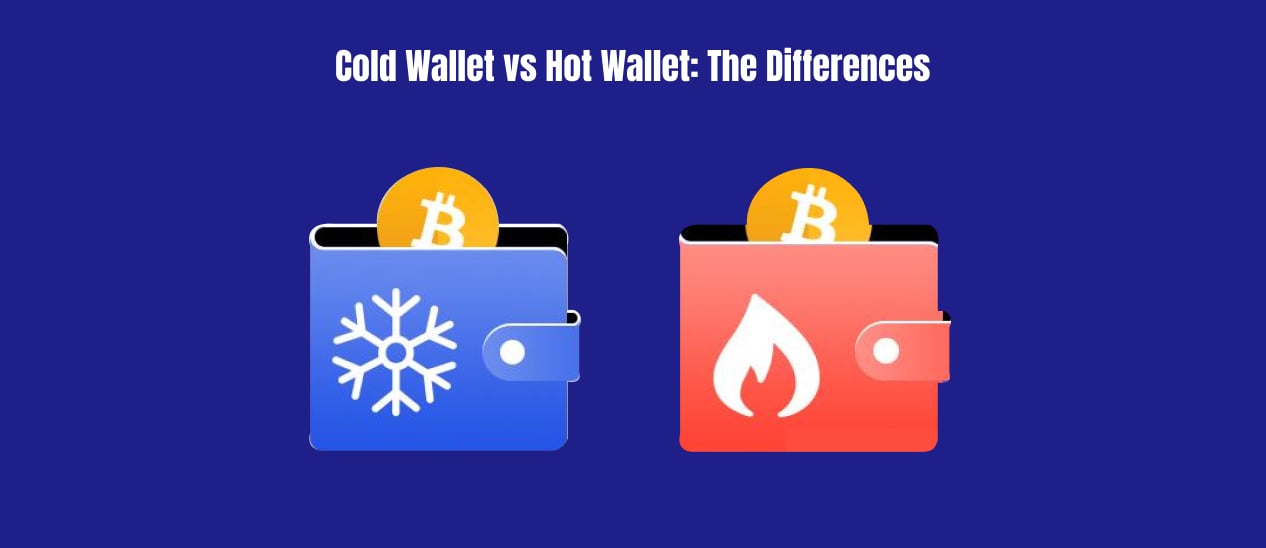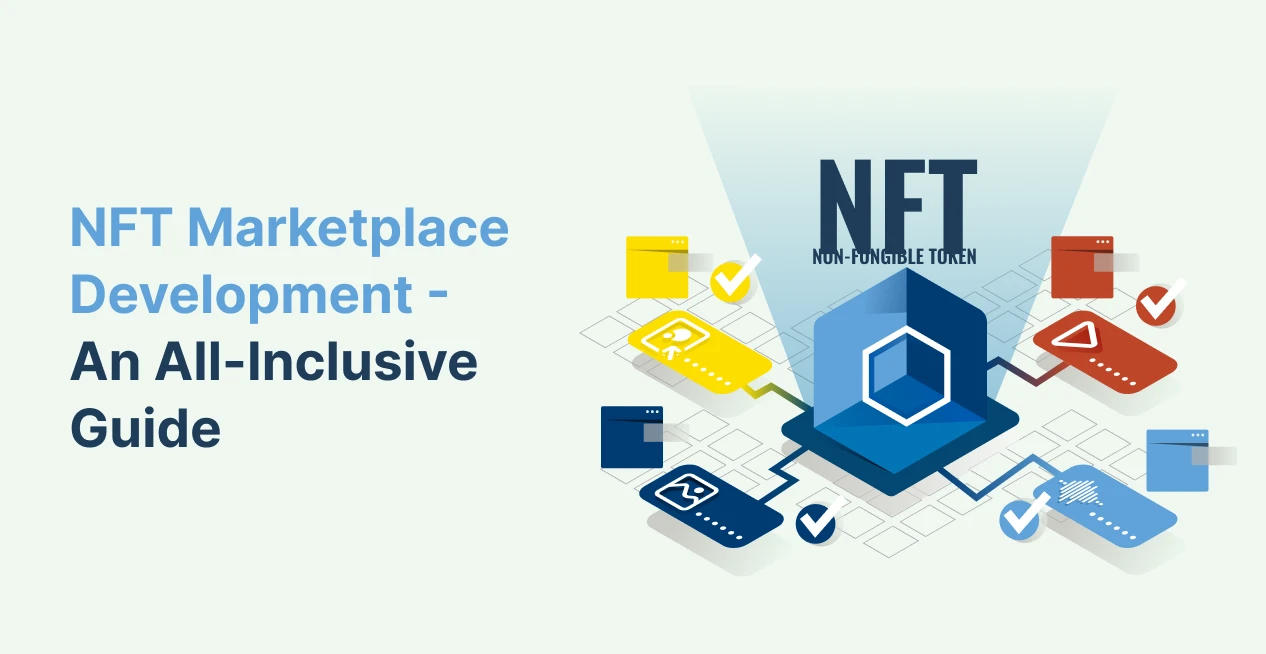-
What is a Hot Wallet?
-
Types of Hot Wallet
-
What is a Cold Wallet?
-
Types of cold wallets
- Hot Wallet vs Cold Wallet: Pros & Cons
-
Cold Wallet vs Hot Wallet: The Differences
-
Hot Wallet vs Cold Wallet: Which wallet is best for crypto?
-
Wrap-up: Cold Wallet vs. Hot Wallet
-
How OpenXcell can help you build a custom crypto wallet?
- Hot Wallet vs Cold Wallet FAQs:
-
After purchasing cryptocurrency, it is vital to decide how and where to store your assets. As cryptocurrency runs on blockchain, it requires a digital storage system. This system is called Wallet. There are two types of crypto wallets available: Hot Wallet and Cold Wallet, or you can choose a combination of the two. The decision between a hot wallet vs cold wallet is a personal choice and depends on various factors.
In this blog, we will understand what is cold wallet vs hot wallet, their types, the differences between them, and how to choose one.
What is a Hot Wallet?
Hot wallets allow users to store crypto directly on their mobile devices or desktops. Due to their constant connection to the internet, these wallets are considered hot. Hackers can easily trace private keys on these hot wallets since they are online, 24*7. Moreover, like any other Android or iOS app, hot wallets can be downloaded from Google Play or the App Store. The majority of hot wallets available today are free to download, and some are also available as mobile apps and browser extensions.
Some hot wallet examples are Exodus, MetaMask, and Trust Wallet.
Types of Hot Wallet
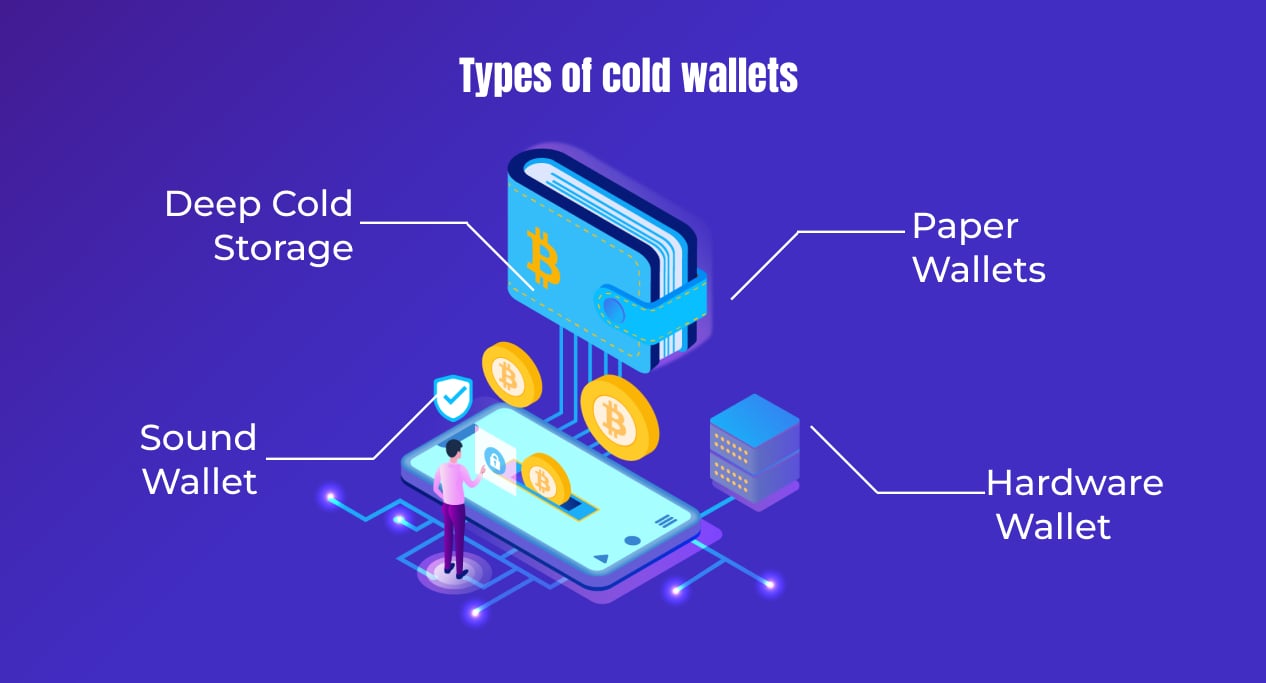
There are different types of hot wallets and they can be used for different purposes. Some are used as mobile apps, web-based wallets, or even wallets based on specific ecosystems. There is a long list of wallets, and their use depends on the needs of the user.
Among the most popular hot wallets are Edge, MetaMask, Coinbase Wallet, Trust Wallet, Exodus Wallet, and Robinhood.
Wallets such as MetaMask allow you to manage Ethereum-based tokens within an ecosystem. Trust Wallet, on the other hand, supports more than 65 cryptocurrencies and tokens, making it a non-custodial and more inclusive wallet. This wallet is available for mobile and web software. With more than 260 cryptocurrencies supported, Exodus Wallet is a versatile software wallet.
What is a Cold Wallet?
A cold wallet is a cryptocurrency wallet that stores your private keys offline, often on a physical device. Hardware wallets protect digital crypto assets from online hackers by using a flash drive-like device that does not connect to the internet. The use of cold storage wallets ensures the security of cryptocurrency holdings and is referred to as cold storage in the crypto world.
Some popular cold wallet examples are paper wallets, Ledger, and Trezor.
Types of cold wallets
There are different types of cold wallets available. Some of them are mentioned below.
1. Paper Wallets
This is a document where public and private keys are printed on it. In addition, there is a QR code embedded in the paper that facilitates crypto transactions. In the event of damage to the document, it becomes useless.
2. Hardware Wallet
It is a type of cold wallet that stores private and public keys offline. Hardware wallets are typically USBs or smart cards, without which you cannot access your crypto. Trezor, Ledger, and KeepKey are examples of commonly available hardware wallets.
3. Deep Cold Storage
A wallet of this type makes accessing your wallet extremely difficult. You could compare this to keeping your cold wallet in a bank’s vault or safe deposit box. Wallets like these are designed for those who need minimal access to their wallets.
4. Sound Wallet
A sound wallet stores your private keys as audio files on CDs, USBs, or vinyl disks, which can then be decoded with a spectroscope app or even a real spectroscope to reveal the hidden codes.
Hot Wallet vs Cold Wallet: Pros & Cons
Pros and Cons of Hot Wallet
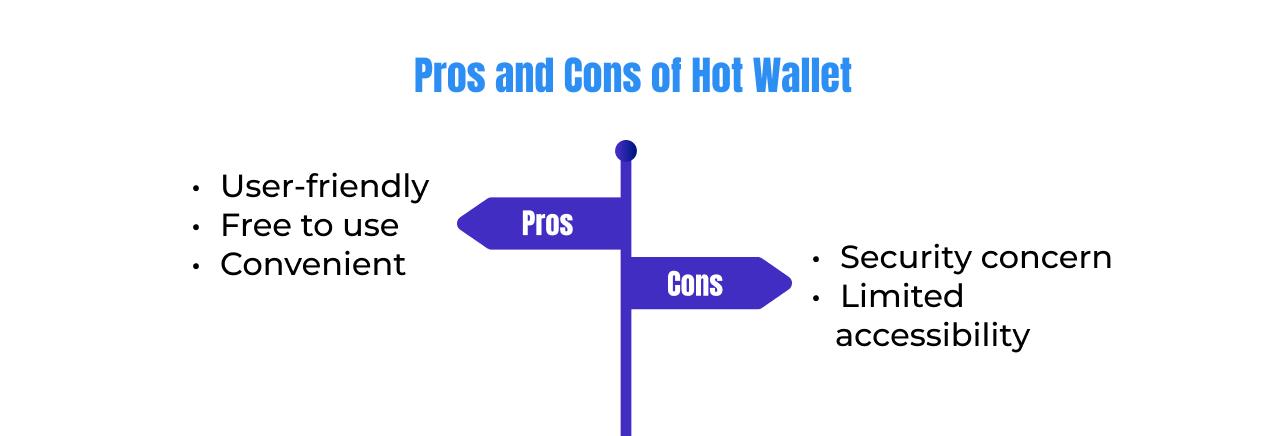
| Hot wallet pros | Hot wallet cons |
| Hot wallet allows you to store and access your crypto easily as it is always connected to the internet. | Generally, hot wallets are secure, but as they are connected to the internet, they are more vulnerable to being attacked. |
| There are many free options available for hot wallet storage. | Some wallet features can not be accessible in some countries or regions considering the local laws because it is always connected to the internet. |
| Connecting your hot wallet to a particular exchange will make interacting within the ecosystem easier. |
Pros and Cons of Cold Wallet
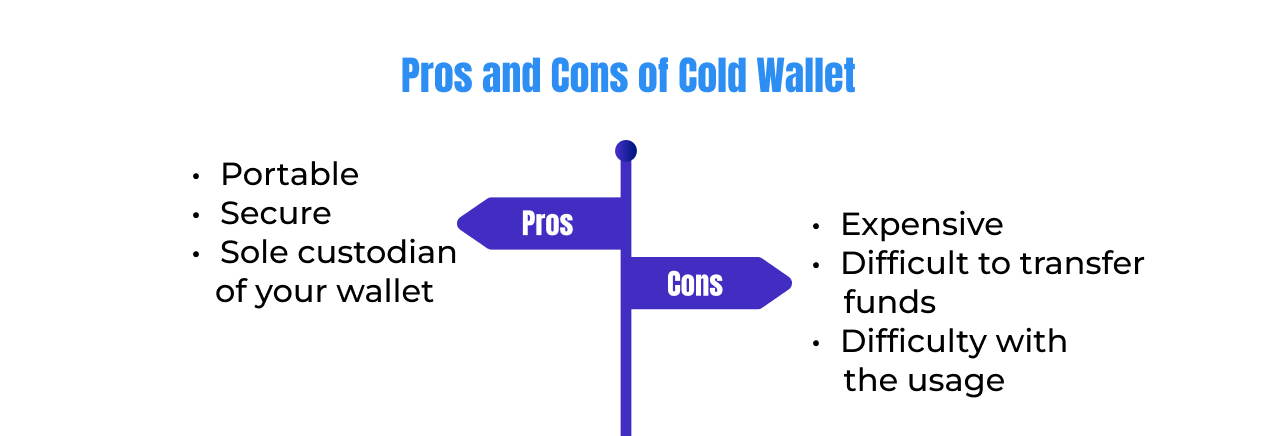
| Cold wallet pros | Cold wallet cons |
| Small, plug-in cold storage devices can be easily logged into decentralized apps anywhere in the world, and they are portable. | In comparison to online wallets, hardware wallets are more expensive, ranging between $70 and $300. |
| The devices are considerably less susceptible to cyberattacks since your private keys are never stored anywhere outside the device and transactions are signed locally. | It is slightly more difficult to transfer funds between cold storage wallets than between hot storage wallets |
| Cold storage gives you total control over your crypto assets, eliminating third-party applications from the process. | It may take some time for some people to learn how to use hardware devices with smaller screens. |
Cold Wallet vs Hot Wallet: The Differences
Before we dive into the distinctions between Cold Wallet and Hot Wallet, let’s explore key aspects crucial in determining the right wallet for your cryptocurrency assets, emphasizing the comparison of hot wallet vs cold wallet.
Pricing
The setup costs for cold wallet solutions are typically high. The lowest hardware wallets have limited functionality and cost approximately $40. For $100, users may buy a mid-sized device that offers a rather high-quality experience.
Whereas, hot wallets are accessible on app stores for Android and iOS users and are free to use. They provide a better user experience than cold storage systems and are also simple to set up.
Security
The highest level of security for crypto assets is offered by cold wallets. They eliminate the majority of online vulnerabilities by storing private keys offline. To move money, bad actors need to seize control of the cold storage device and get the owner’s permission. If the wallet makes use of a multi-signature functionality, several parties must sign a transaction before it is allowed, this presents an extra challenge.
Hot wallets, in comparison, are vulnerable to online attack methods such as malicious smart contracts, device viruses, and software updates. For instance, a software upgrade directly caused an unprecedented compromise that affected 9,231 Slope Wallet users and allowed attackers to obtain private keys containing assets worth almost $4.1 million.
Convenience
Hot wallets are more practical than cold wallets because they are native desktop and mobile applications. In order to validate transactions for cold storage systems, the user must physically own the device and go through many security checks. The screens are typically quite small and only show a few lines of text.
Hot wallets, on the other hand, are portable and frequently take the form of PCs, tablets, and cellphones. Hot wallets are more practical for signing transactions since they provide features like fingerprint authentication, QR codes, and sophisticated transaction fee customisation. This is especially useful if users wish to interact with smart contracts or send payments regularly.
Interaction
Smart contracts and Web3 applications are more compatible with hot wallets. When using these wallets, users can quickly connect to Dapps. In contrast, the majority of cold storage wallets do not offer features for modern crypto developments like NFTs and DeFi protocols. As an illustration, some do not permit sending and receiving NFTs or tokens from liquidity providers (LP).
A Dapp browser, NFT display, staking portal, and gaming hubs are common features of hot wallets. Because they are not intended for certain use cases, cold storage solutions offer fewer opportunities for user interaction.
Hot Wallet vs Cold Wallet: Which wallet is best for crypto?
The best option is usually a combination of cold wallet vs hot wallet, taking into account the benefits and drawbacks of each type. A hot wallet offers convenience, but a cold wallet offers peace of mind and security. Most people will end up with different versions of each wallet: A hardware cold wallet, an exchange account hot wallet, and a mobile hot wallet. With each crypto wallet, you can use it for a specific purpose, balancing ease of use with security.
Wrap-up: Cold Wallet vs. Hot Wallet
Security and convenience are the biggest tradeoffs between hot wallet vs wallet. Based on whether you value ease of trading and stakes over security from potential online hackers, you can choose the right method for you.
Combining both wallet types can provide a better balance of convenience and security, allowing you to trade and earn interest on small investments online while storing larger investments offline. Storing a large number of crypto assets in a hot wallet can make your account vulnerable to theft. Combining Web3 applications with diversified portfolios is advantageous, especially for investors with diversified portfolios.
How OpenXcell can help you build a custom crypto wallet?
Our cryptocurrency wallet development services will help you create a secure and robust crypto wallet for seamless transactions. We assist businesses with designing, developing, integrating, and maintaining crypto wallet applications. We have a team of experienced professionals who will help you build a custom crypto wallet for a flawless experience.
OpenXcell has been carefully exploring all the possibilities of cryptocurrency wallet development by leveraging its long-term industry experience and extensive expertise in blockchain development services. By delivering exceptional value to our customers, we enable them to invest with confidence in their Blockchain migration and leverage its services to achieve financial and business success in the future.
Hot Wallet vs Cold Wallet FAQs:
Can I create my own crypto wallet app?
Yes, you can build your own crypto wallet and integrate them with payment and other business solutions. You can get help from Crypto Wallet App Development Company to build one.
What is the cost of crypto wallet app development?
Crypto wallet app development costs are determined by the complexity of the app. A simple app can cost $15,000 to $60,000, but a highly complex app can cost up to $200,000. To get a fair idea of the cost and time of wallet development, you can contact our development team at any time.
Is it possible to store more than one cryptocurrency in a wallet?
Yes, it is possible to store more than one cryptocurrency in a wallet. For that, your wallet should be developed in a way so that it can store more than one currency.
How do I secure my crypto wallet password?
Crypto wallets can be secured by following these tips: use a secure internet connection, encrypt your wallet with a strong password, and use two-factor authentication.
Which is the best cryptocurrency wallet?
It depends on how you plan to trade cryptocurrencies and whether you are just starting out or already an advanced user. You don’t need to choose the best cryptocurrency wallet, but rather learn about good crypto wallets and choose one that meets your needs.



